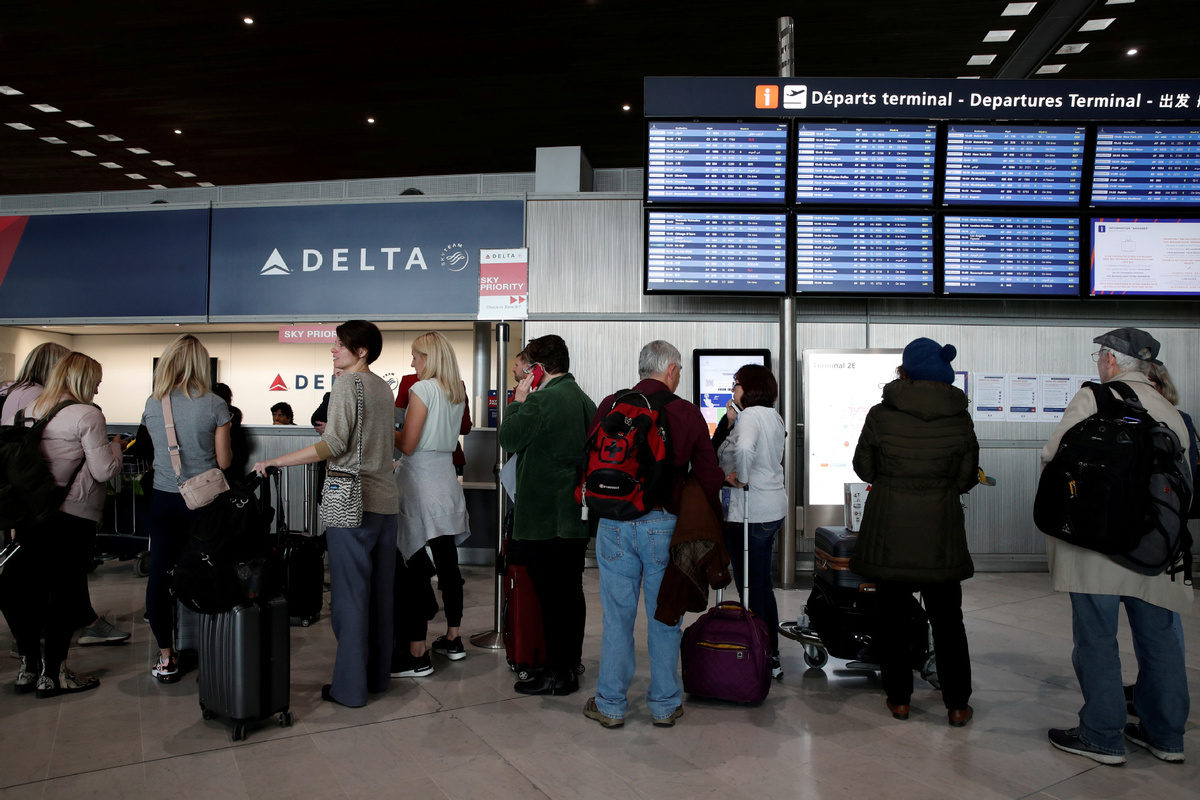Europe closes borders to slow virus
By EARLE GALE in London | China Daily Global | Updated: 2020-03-18 09:12

The United Kingdom has advised its citizens not to travel overseas during the next 30 days in a move aimed at slowing the spread of novel coronavirus and the COVID-19 respiratory disease it causes.
The Foreign and Commonwealth Office advice was announced by Foreign Secretary Dominic Raab in the House of Commons on Tuesday. He said part of the rationale was that people may not be able to return.
"UK travelers abroad now face widespread international border restrictions and lockdowns in various countries," Raab said. "The speed and range of those measures across other countries is unprecedented."
The decision was followed by Chancellor Rishi Sunak unveiling 330 billion pounds ($398 billion) of financial support for businesses impacted by the virus.
Sunak said the fight against the virus is "not only a public health emergency but an economic emergency".
"I promise to do whatever it takes to support our economy," he said, while assuring the public the government will support jobs, and businesses "large and small".
With the nation's death toll from COVID-19 rising by 14 to 69 on Tuesday, and with the number of infections estimated to be as high as 50,000, the UK also found 3.2 million pounds of emergency funding to support homeless people with the infection.

Also on Tuesday, the Church of England said it was suspending religious services until further notice.
NHS England postponed all nonurgent surgery in an attempt to free up 30,000 hospital beds. It said the operations would be put back by at least three months.
Prime Minister Boris Johnson said on Tuesday: "We must stop this disease spreading to a point where it overwhelms our NHS."
And he said the nation will not win the fight alone. "While we need national unity, we also need international cooperation," he said.
Tuesday's announcements followed Johnson declaring on Monday that people should avoid unnecessary social contact and steer clear of people in at-risk groups, such as the elderly and those with underlying health conditions, who were also told to prepare to isolate themselves for 12 weeks. He said people should work from home, if possible.
This week's announcements were in marked contrast to those of last week that prompted widespread criticism of an alleged lack of action.
The BBC said on Tuesday the raft of new measures meant the UK was in a situation that was "unprecedented" in peacetime.
The broadcaster said the government stepped up its response after studying scientific modeling produced by Imperial College London that predicted the UK was on course for a "catastrophic epidemic", with 260,000 deaths, if it did not take more action.
In response to the announcements, venues across the UK, including the British Museum, Science Museum, the Royal Albert Hall, the London Palladium, the National Theatre, and the Royal Opera House, closed their doors. And Odeon and several other cinema operators said they would mothball movie theaters.
Elsewhere, the European Union was poised to introduce a ban on all non-essential travel throughout its Schengen free-travel zone after European Commission President Ursula von der Leyen said: "The less travel, the more we can contain the virus."
And French President Emmanuel Macron told people to stay in their homes.
"We are at war," he said in a televised address on Monday evening that was watched by 35.3 million people. "We're fighting neither another army nor our own nation. But the enemy is here, invisible, untouchable ... and is advancing."
Le Monde newspaper reported that 96 percent of people who were watching TV at the time were watching Macron. As of Tuesday morning, France had more than 6,000 infections and 148 deaths.

But Italy remained the worst-affected nation outside China, with at least 31,000 infections and more than 2,500 deaths.
In Germany, Chancellor Angela Merkel banned religious events and ordered people to cancel their holidays, whether overseas or within the nation. And she ordered venues, such as pubs, leisure centers, and playgrounds, to close.
"The better everyone sticks to these rules, the faster we'll get through this phase," she said at a news conference in Berlin, where large gatherings have already been banned and schools closed.
In Spain, where by Tuesday lunchtime 491 people had died, a government-ordered lockdown of the nation's 47 million inhabitants that was ordered on Saturday is now taking hold.
UEFA, the governing body of European soccer, announced on Tuesday that the Euro 2020 tournament will be postponed, until 2021, because of the pandemic.
Charles Michel, president of the European Council, summarized the situation across the continent when he said on Tuesday ahead of a video meeting of EU leaders: "We have to be honest with our citizens: this is a serious crisis, a long crisis, and a difficult crisis."
























